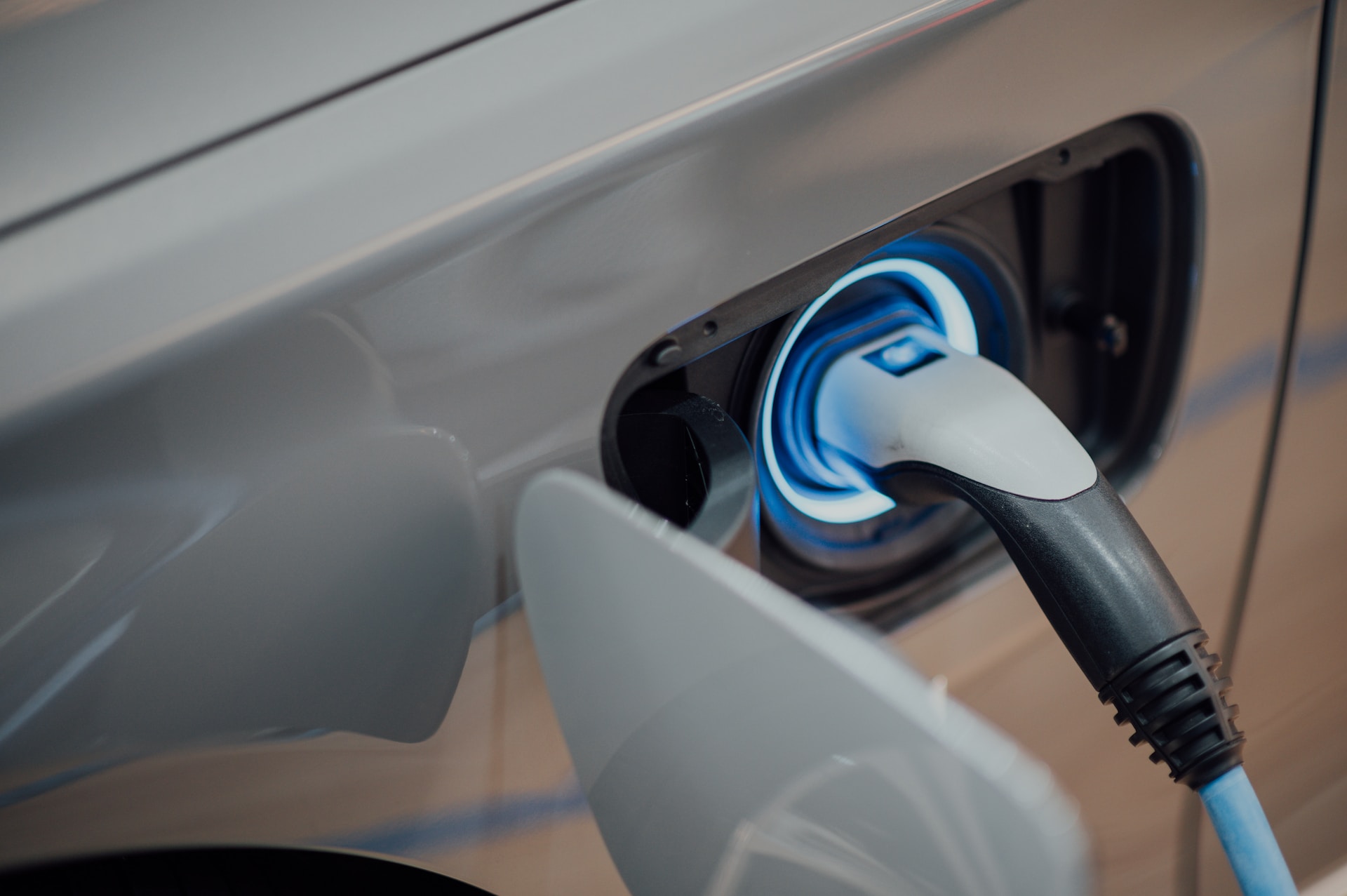Electric Cars
Electric cars are becoming increasingly popular as people look for ways to reduce their environmental impact. There are a number of different technologies that are being developed to make electric cars more efficient and reduce their emissions.

View open jobs in this Solution
Example Companies
- Tau Group - E-mobility, Sustainable Manufacturing, Advanced Materials, Cleantech, Electrification, Decarbonization
- ev.energy - Provides smart charging solutions for electric vehicles to optimize energy use.
- EdgeEnergy - Develops innovative EV charging infrastructure.
- Zoox - Focuses on autonomous electric vehicles for urban mobility.
- Alpha Grid - Uses AI to enhance the efficiency of electric vehicle fleets.
Overview
- A Look at Transportation Companies - Climate Drift
- Climate Hype Curve: Transportation - Part 1 - Climate Drift
- Electric Buses: A more accessible, scalable and sustainable alternative to electric cars - Climate Tech Distillery
- Challenges and Opportunities of Electric Vehicles - Warming Up to Climate Tech
Electric cars are a key solution to reducing greenhouse gas emissions from the transportation sector. Advances in battery technology, charging infrastructure, and vehicle design have made electric vehicles (EVs) more accessible and practical for everyday use.
The biggest benchmark from Speed & Scale
Achieve price and performance parity between EVs and combustion cars within two years.
Use their news tracking tool to track progress
Also to attain a 50% global share of EVs by 2030 which is being tracked here
Progress Made
- Battery Technology: Significant improvements in battery energy density and cost reduction.
- Charging Infrastructure: Expansion of fast-charging networks to support long-distance travel.
- Vehicle Range: Increased range of electric cars, making them more competitive with traditional internal combustion engine vehicles.
Solutions by Sector
Manufacturing
- Battery Production: Developing high-capacity, long-lasting batteries.
- Vehicle Design: Creating aerodynamic and lightweight designs to improve efficiency.
- Sustainable Materials: Using eco-friendly materials in vehicle construction.
Case Studies:
- Tesla: Pioneered the mass production of electric cars with high-performance batteries (Tesla).
- Nissan Leaf: One of the best-selling electric cars globally, known for its affordability and reliability (Nissan).
- Rivian: Focuses on electric trucks and SUVs with advanced battery technology and off-road capabilities (Rivian).
Infrastructure
- Charging Stations: Expanding public and private charging networks.
- Smart Grids: Integrating EV charging with renewable energy sources.
- Battery Recycling: Developing processes for recycling and reusing EV batteries.
Case Studies:
- ChargePoint: Operates one of the largest networks of independently owned EV charging stations (ChargePoint).
- EVgo: Provides fast charging solutions across the United States, supporting long-distance travel (EVgo).
- ABB: Develops advanced charging solutions and grid integration technologies (ABB).
Policy and Advocacy
- Government Incentives: Offering tax credits and rebates for EV purchases.
- Regulatory Support: Implementing policies to phase out internal combustion engines.
- Public Awareness: Educating consumers about the benefits of electric vehicles.
Case Studies:
- California Zero-Emission Vehicle Program: Mandates that a certain percentage of automakers' sales must be zero-emission vehicles (California Air Resources Board).
- Norway's EV Policies: Provides extensive incentives, making Norway a leader in EV adoption (Norwegian EV Association).
- European Union's Green Deal: Includes measures to promote electric vehicles and charging infrastructure (European Commission).
Lessons Learned
- Infrastructure Development: Adequate charging infrastructure is crucial for widespread EV adoption.
- Battery Technology: Advances in battery technology are key to improving range and reducing costs.
- Consumer Education: Educating consumers about the benefits and practicality of EVs is essential.
- Policy Support: Government incentives and regulations play a significant role in accelerating EV adoption.
- Sustainability: Ensuring the sustainability of the entire EV lifecycle, from production to disposal, is important.
Challenges Ahead
- Battery Supply Chain: Ensuring a sustainable and ethical supply of raw materials for batteries.
- Charging Infrastructure: Expanding and maintaining a robust charging network.
- Cost Reduction: Further reducing the cost of EVs to make them more accessible.
- Consumer Acceptance: Overcoming range anxiety and other consumer concerns.
- Recycling and Disposal: Developing efficient recycling processes for EV batteries.
Best Path Forward
- Invest in R&D: Continue investing in research and development for battery technology and vehicle design.
- Expand Infrastructure: Build more charging stations and integrate them with renewable energy sources.
- Policy Support: Implement supportive policies and incentives to encourage EV adoption.
- Consumer Education: Increase public awareness and education about the benefits of electric vehicles.
- Sustainability Practices: Ensure sustainable practices throughout the EV lifecycle, including recycling and disposal.
Image credit: Unsplash